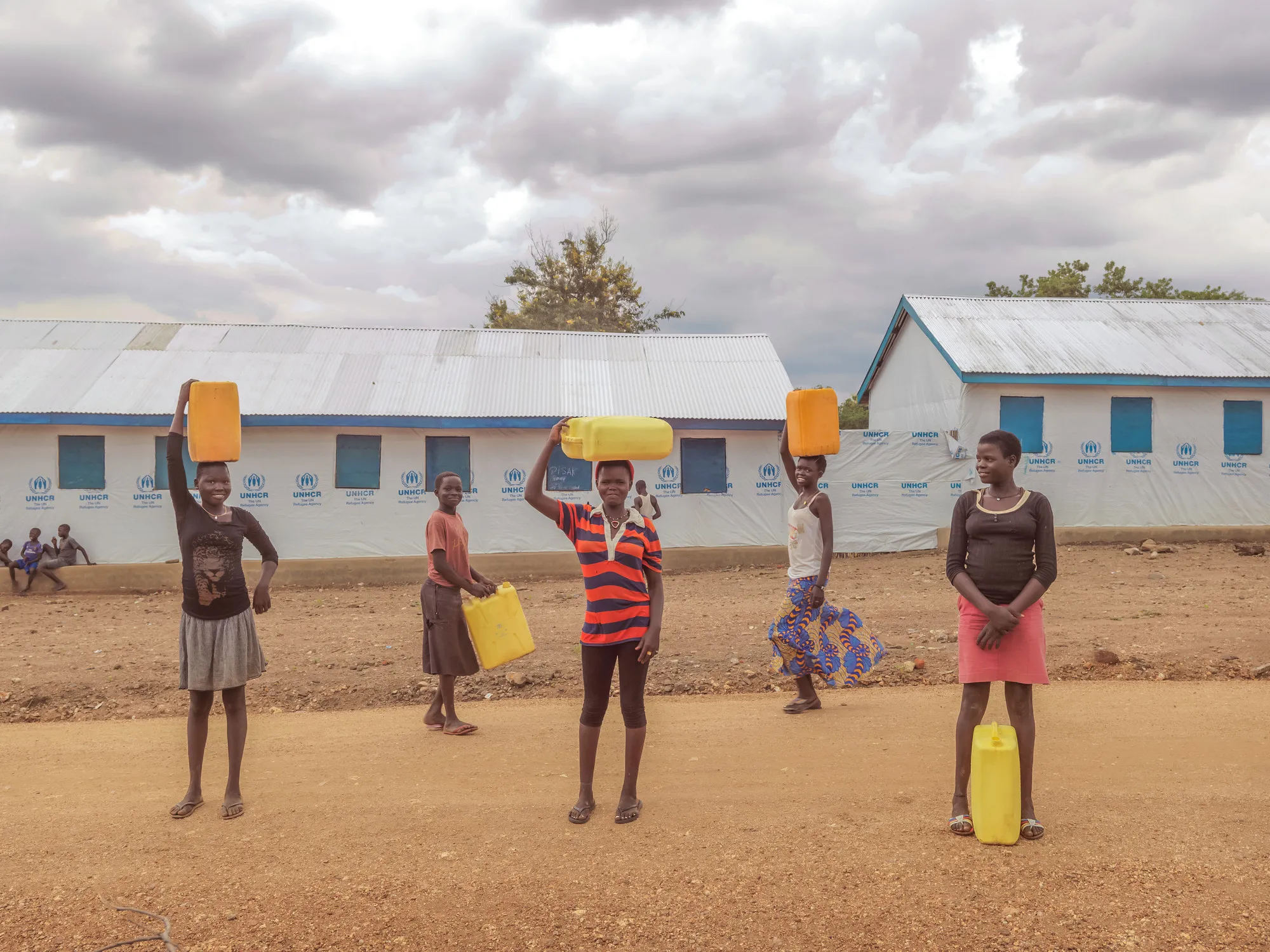They witnessed killings and escaped gunshots. They faced, thirst, hunger, and sexual harassment from armed men before reaching the Ugandan border.
The bed sheets allowed Viola and her family to sleep in the bush in a dark, camouflaged area. Her grandmother carried two saucepans to cook what little food they had along the way. Now they are trying to build a life in Uganda’s Imvepi refugee settlement, along with more than 100,000 other South Sudanese.
Among the many challenges faced by girls and women like Viola fleeing crises is access to the education and resources to manage their periods. Like other women and girls in the settlement, it was difficult for Viola to find money to buy pads. At times, she’s been forced to sell her food ration in order to buy a piece of cloth and a robe, which is torn and fitted to hold the cloth and then fastened around her waist. It’s a bulky and uncomfortable way for Viola and others to manage their menstrual cycles, but it’s often their only option.
Periods can make school stressful for female students who are uncomfortable and may not have all the information they need to know what’s going on with their bodies. Boys often tease girls when their uniforms show an outline of a pad or staining and go through their bags looking for menstrual supplies in order to make fun of them. The bullying affected Viola’s self-esteem, disrupted her focus and isolated her from her schoolmates. One of Viola’s friends, Jenet, dropped out of school after being bullied about a stain on her uniform.

